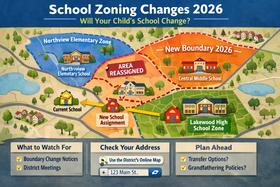For the 2025-26 school year, there is 1 public high school serving 42 students in 58456, ND.
Public high school in zipcode 58456 have an average math proficiency score of 50% (versus the North Dakota public high school average of 34%).
Public high school in zipcode 58456 have a Graduation Rate of 50%, which is less than the North Dakota average of 79%.
The school with highest graduation rate is Kulm High School, with ≥50% graduation rate. Read more about public school graduation rate statistics in North Dakota or national school graduation rate statistics.
Minority enrollment is 10% of the student body (majority Hispanic), which is less than the North Dakota public high school average of 28% (majority American Indian).
Best 58456, ND Public High Schools (2025-26)
School
(Math and Reading Proficiency)
(Math and Reading Proficiency)
Location
Quick Facts
Rank: #11.
Kulm High School
(Math: <50% | Reading: <50% )
Rank:
Rank:
8/
Top 30%10
217 2nd Ave Se
Kulm, ND 58456
(701) 647-2303
Kulm, ND 58456
(701) 647-2303
Gr: 9-12 | 42 students Student-teacher ratio: 8:1 Minority enrollment: 9%
Frequently Asked Questions
What are the top-ranked public high schools in 58456, ND?
The top-ranked public high schools in 58456, ND include Kulm High School.
How many public high schools are located in 58456?
1 public high schools are located in 58456.
What is the racial composition of students in 58456?
58456 public high schools minority enrollment is 10% of the student body (majority Hispanic), which is less than the North Dakota public high schools average of 28% (majority American Indian).
Recent Articles

Public School Open House & Enrollment Season Guide for Parents
Learn what to ask at a public school open house during enrollment season, from academics to safety, to choose the right school for your child.

School Zoning Changes 2026: How Assignments May Shift
School Zoning Changes 2026 could affect your child’s school assignment. Learn how zoning works, what is changing, and how families can prepare.

School Vouchers: Updated Pros and Cons (2025 Review)
Comprehensive 2025 analysis of school vouchers, weighing benefits and challenges for families, funding, outcomes, and policy directions.
